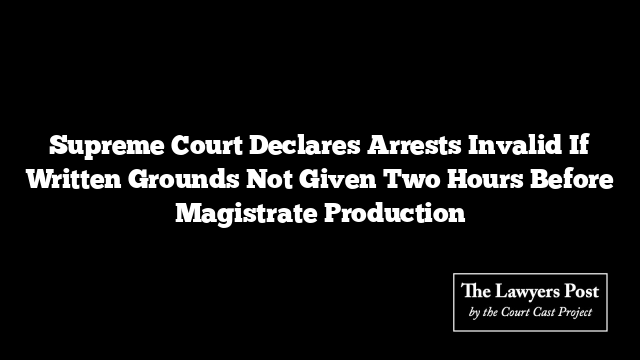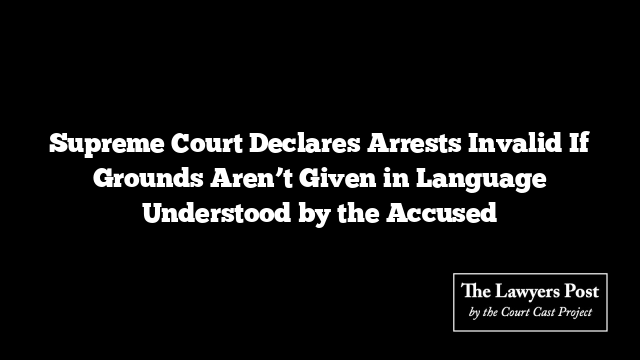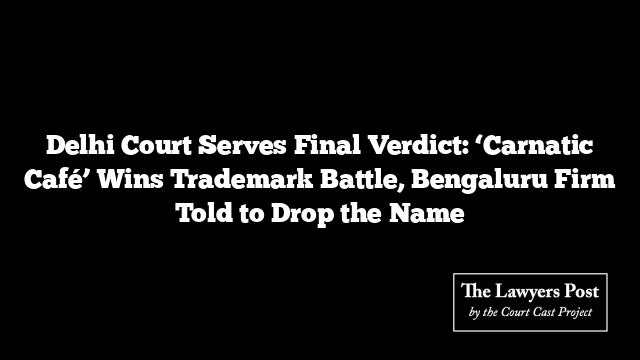In a defining reaffirmation of personal liberty, the Supreme Court has ruled that every person arrested—under any law—must be given written grounds of arrest in a language they understand, and that too at least two hours before being produced before a magistrate. Failure to do so, the Court said, would make both the arrest and any subsequent remand legally void.
The bench of Chief Justice B.R. Gavai and Justice Augustine George Masih held that this obligation is not limited to cases under special statutes such as the PMLA or UAPA, but extends to all offences, including those under the Indian Penal Code (now Bharatiya Nyaya Sanhita).
Calling the right to be informed of arrest grounds a “binding constitutional safeguard”, the Court anchored its reasoning in Articles 21 and 22(1) of the Constitution, noting that ignorance of arrest grounds strips an individual of the ability to seek bail, legal counsel, or even challenge the detention.
“If a person is not informed of the grounds of arrest as soon as may be, it violates their fundamental right to life and liberty,” the judgment stated, making it clear that such an arrest is unconstitutional.
The Court’s Key Directions
-
The duty to inform the arrestee of arrest grounds applies to all laws, including offences under the IPC/BNS.
-
The grounds must be given in writing and in a language the person comprehends.
-
If immediate written communication is not possible, the arresting officer may state the grounds orally — but a written version must follow within a reasonable time, and absolutely no later than two hours before the magistrate remand hearing.
-
Non-compliance with these requirements makes the arrest and remand illegal, entitling the person to immediate release.
The Case Behind the Ruling
The judgment stemmed from a high-profile hit-and-run case in Mumbai, where the accused argued that he had never been given written grounds for his arrest. The Bombay High Court had acknowledged lapses in procedure but declined to declare the arrest illegal, citing the seriousness of the offence.
On appeal, the Supreme Court disagreed. It ruled that the right to be informed is not dependent on the gravity of the offence, but is an inseparable part of fundamental rights.
A Narrow Window for Exception
The Court recognized a limited exception—only for cases where immediate written communication is impossible, such as when an offence occurs in an officer’s presence. Even then, it insisted that a written copy must be provided within hours, not days.
The ruling clarified that if the written grounds are supplied within a reasonable time—specifically before the magistrate’s remand hearing—the arrest remains valid. However, if that timeline is breached, both arrest and remand stand void.
This landmark decision marks one of the Court’s strongest pronouncements yet on the sanctity of due process and the constitutional guarantee of liberty—underscoring that no arrest, however grave the charge, can bypass the written word of the law.





